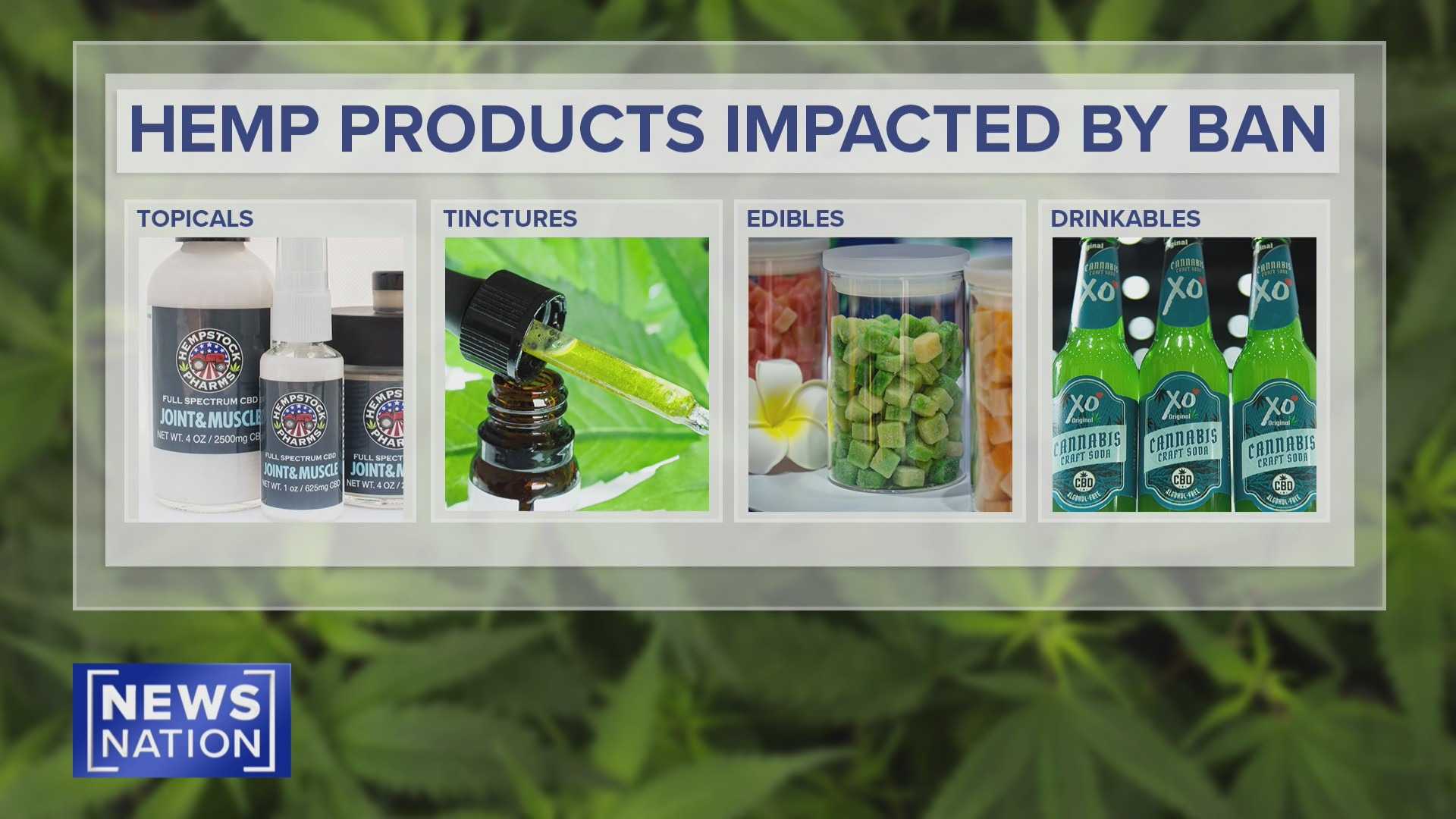Business
Congress Bans Most Hemp Products, Threatening Industry with Major Losses

Washington, D.C. — Congress has passed a controversial resolution that includes a provision to ban nearly all hemp-derived consumer products, raising concerns about potential job losses and economic downturns in the hemp industry. The surprise decision, made late Wednesday, comes as part of a deal to end the longest government shutdown in U.S. history.
The new law specifically prohibits products containing more than 0.4 milligrams of total THC per container, a significant change from the previous limit of 0.3% THC by weight established in the 2018 Farm Bill. Experts say this new threshold will eliminate 95% of the estimated $28 billion hemp retail market when it takes effect in one year.
“We have lost the battle this time,” said a representative from the industry, stating that the new rules represent a total ban on hemp products in the United States. For context, typical hemp gummies can contain between 2.5 to 10 milligrams of THC.
More than 300,000 jobs associated with the hemp economy are now at risk, from farmers to manufacturers. “There’s a lot of small retailers and farmers relying on hemp sales to survive,” Michael Gorenstein, CEO of cannabis producer Cronos Group, told CNBC. “It’s going to create a lot of pressure when they start losing business, losing jobs, and losing crops.”
States with significant hemp infrastructure, including Kentucky, Texas, and Utah, are expected to face the steepest economic impacts. The crackdown signals a major shift from 2018, when Senate Majority Leader Mitch McConnell, R-Ky., championed hemp legalization in hopes of boosting agricultural economies.
McConnell argued that closing the loophole is vital to restore the original intent of the Farm Bill, asserting it is key to preserving his agricultural legacy before retirement. “This was his signature law, and he wanted to correct it,” Boris Jordan, CEO of a cannabis company, shared.
However, not all politicians agree with the ban. Senator Rand Paul, R-Ky., has been vocal against the provision, suggesting it will have devastating effects on farmers and small business owners. He described it as “the most thoughtless, ignorant proposal” he’s seen recently, warning that all hemp plants in the country will need to be destroyed.
Despite the impending ban, industry leaders believe consumer demand for hemp-based products will persist. Gorenstein warned that this could lead to a surge in black-market sales, posing risks as these products often lack safety testing and age restrictions. “What this ban is going to do is force small players into the illegal market,” Jordan said.
As the industry anticipates the changes, it is preparing for a lobbying effort to replace the ban with regulations on testing, labeling, and age restrictions. “We are activating across the sector,” Miller stated, emphasizing a unified approach to advocate for sensible regulations.
Simultaneously, there are discussions about potentially rescheduling cannabis from a Schedule I to a Schedule III drug, which advocates believe would enhance the ability to sell hemp products legally.
“Big changes are expected across the board next year,” Gorenstein noted, hinting at uncertainty about the future of investments and the industry as a whole.












